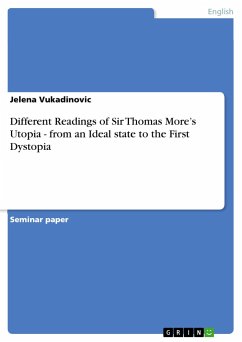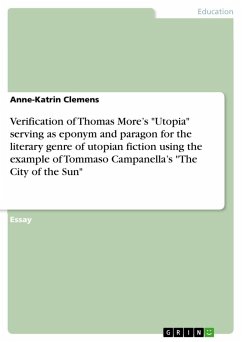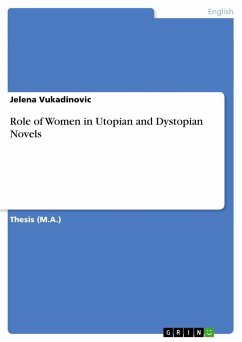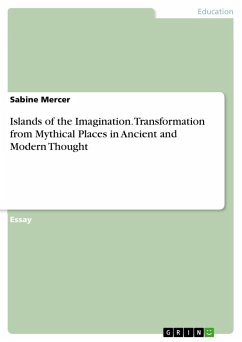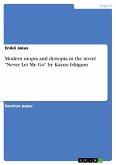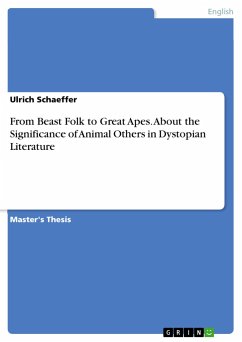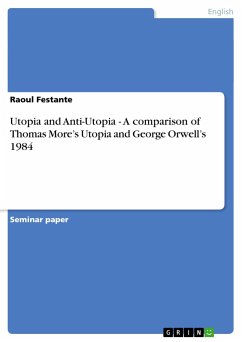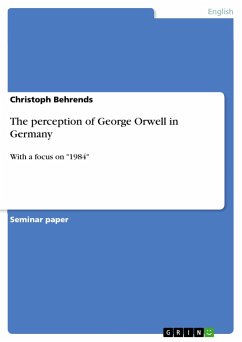Seminar paper from the year 2009 in the subject English Language and Literature Studies - Literature, grade: 2,0, RWTH Aachen University (Institut für Anglistik), course: Utopian Novels, language: English, abstract: The aim of this paper is to point out some of the main trends in current criticismof More's Utopia, by presenting and discussing some of the most important theses fromthe most representative critical writings from each of the aforementioned arches ofinterpretation. Special attention will be given to the question in how far it is justifiableto read Utopia as a negative concept, albeit even partly, or even as the first dystopia. Inorder to analyse this, a number of aspects has to be considered first. One has todifferentiate between the questions of More's intentions and modern readers' point ofview on the Utopian commonwealth. Even if More meant his island to be ideal and ablueprint for a new and better society, which is itself already very disputable, it does notnecessarily mean that it can still be seen as such. Most modern reader cannot beexpected to see Utopia as society which is anywhere near perfect or desirable. Values,of societies as well as individuals, have shifted in their meaning and focus between theera of Tudor England and today. It is also rather questionable in how far the utopiansociety would have appeared as ideal to More's contemporaries, especially in regard toits communism and its religious practices.
Hinweis: Dieser Artikel kann nur an eine deutsche Lieferadresse ausgeliefert werden.
Hinweis: Dieser Artikel kann nur an eine deutsche Lieferadresse ausgeliefert werden.

